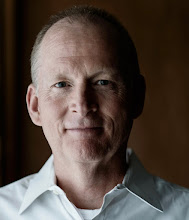 Yesterday's post contained an excerpt from an interesting book I've been reading-- Church Unique by Will Mancini. This selection from Church Unique completes the thought I posted yesterday:
Yesterday's post contained an excerpt from an interesting book I've been reading-- Church Unique by Will Mancini. This selection from Church Unique completes the thought I posted yesterday:What the church really needs is a strategy that helps them function more like a football team than a golf team. A football team shares one score based on the coordination of highly diverse functions—there may be forty-six individuals with forty-six performance indicators, but there are not forty-six different goals. The singular goal is to get the ball into the end zone.
A strategic plan can easily divide a team by giving each player a different goalpost.
How exactly does this happen? Here is why a strategic plan with multiple goals inhibits synergy:
* Too many goals threaten to make any one goal unclear. Would we rather have 46 goals that no one remembers or one goal that forms the ever-present gauge on you “dashboard of ministry?”
* Too many goals weaken the connection between the goals and the larger vision. Do we want workers who are excited about the big picture as they go about their daily ‘bite-sized” tasks? Imagine your volunteers as brick makers. Do you want every brick maker focused on “bricks-per-hour efficiency,” brick yield loss, brick compression strength, mortar viscosity, etc., at the risk of not envisioning the beautiful cathedral they are building?
* Too many goals make it harder for people to have shared goals. How can our leaders all point in the same direction on cue, as we navigate ministry together (like the choreography of a school of fish darting through the water)? How do our goals inadvertently create competition for the same limited resources?
* Too many goals inhibit good decision-making on the front line of ministry. Do we have a lot of goals because we are trying to compensate for a lack of trust and communication? Are we releasing competent people on the front line of ministry, or are we dictating decisions from the leaders' conference room?
Time and time again, I see more goals equaling more confusion. Well-intentioned church leaders think they are building a ladder to greater achievement. What they really are building is a chute that flushes synergy down the drain.

















